Around the Bloc: Saakashvili’s Verbal Attack on Colleagues Ends in Damp Squib
Ukrainian Interior Ministry denounces Odessa governor’s claims as ‘absolute lies.
More...We kindly inform you that, as long as the subject affiliation of our 300.000+ articles is in progress, you might get unsufficient or no results on your third level or second level search. In this case, please broaden your search criteria.
Ukrainian Interior Ministry denounces Odessa governor’s claims as ‘absolute lies.
More...
Russian pranksters had duped the British singer into thinking Vladimir Putin had reached out to him – now he actually has.
More...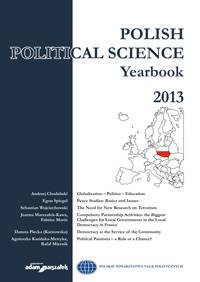
The author undertakes to discuss the problem of rivalry strategies of political parties in elections to the Citizens’ Assembly of the Free and Hanseatic City of Hamburg. The broadness and multidimensional character of the subject area requires moving beyond the limits of political science and entering other related domains, like broadly-conceived historical sciences, also reaching for a number of establishments within legal-historical domains. Firmly grounded historical, legal, polity-related and political aspects of the unification of Germany in the context of German federalism, encouraged and obligated the author, to attempt to bring the above problem up to date. I think that thanks to a broader analysis of elections to the Hamburg Citizens’ Assembly over the last 50 years, the real state of the problem area can acquire a fuller context, with an emphasis on the foundations of local government functioning. To prepare this paper I made use of Polish and German sources published by Polish, American and German researchers. Polish and German literature offered a valuable source to become acquainted with the history and the foreseeable future of Hamburg’s local government, in particular – the assumptions behind territorial and functional reforms, the evolution of which we have been able to follow in the Federal Republic of Germany since the 1970s.
More...
Research on relations between art and politics has its tradition. However, it mainly refers to literature, whose part, as far as its authors’ intentions are concerned, is of a political character, in a lesser degree – of a picture. Sound, especially if it is not linked to a text and/or a picture, is considerably more seldom analyzed from the point of view of its importance in politics. As long as a word and a picture happen to convey unequivocal political meaning, qualified as such by most recipients, sound cannot be obviously considered a political message. It is questionable whether music can convey any meaning in whatever sense. If one can manage to suppress this doubt, it will result in a question how to construe the senses conveyed through the medium of melodic – rhythmic structures. However, the findings in the field of widely understood humanities affirm that music serves as a creator’s message directed to both individual and collective receivers. Political science studies often bring up a matter of communication between authorities and the subjects (in authoritarian regimes), and also between representatives of a nation or people claiming their role and electorate (in democratic regimes). At the end of the 1960s, American and Canadian scientists made room for music, one of the most widespread communicators, i. a. in political sphere. At that time, interdisciplinary teams including American sociologists, political scientists, culture and media experts undertook.
More...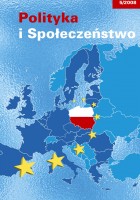
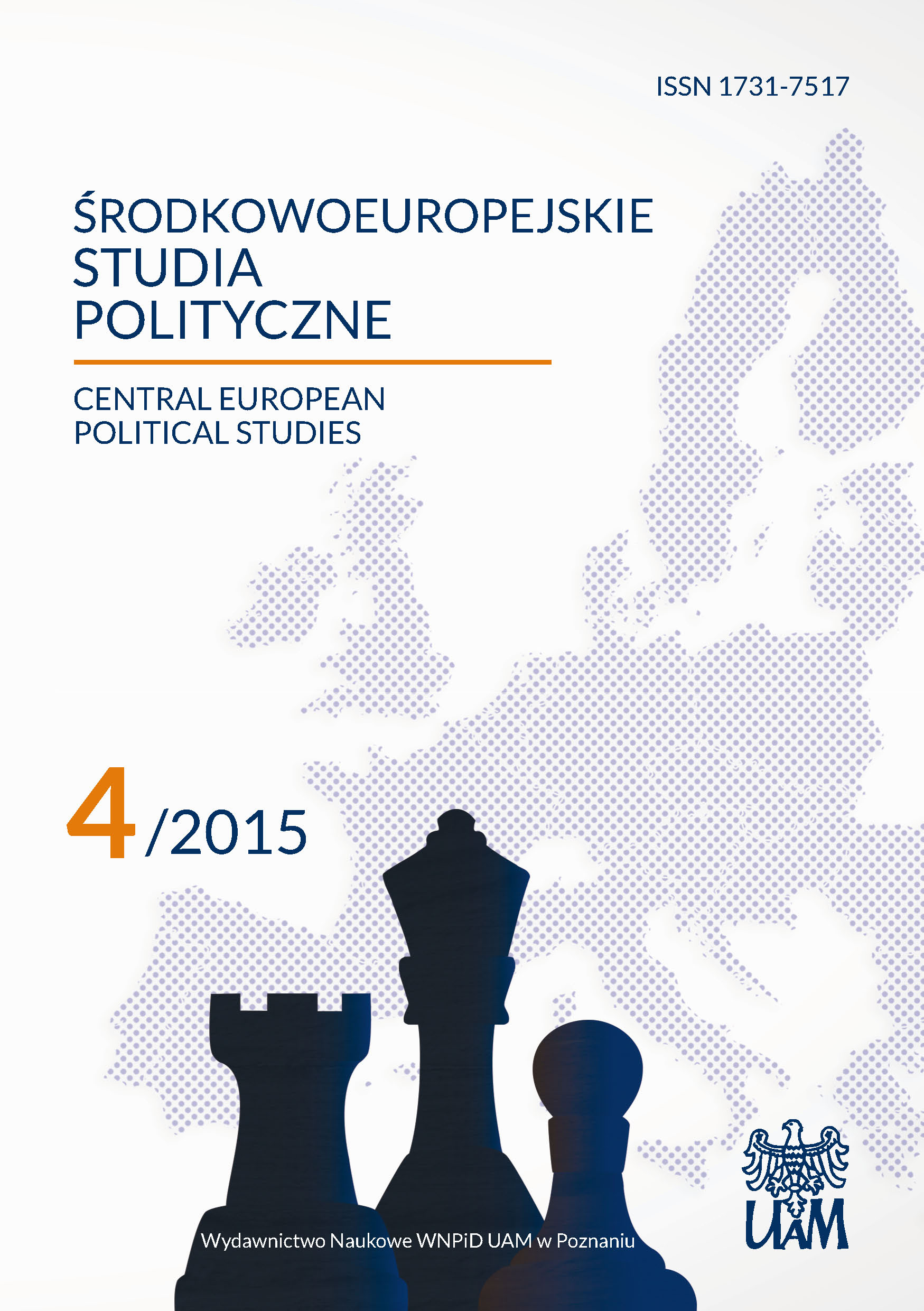
Interdisciplinary relations bring a large variety of instruments to the researchers. Some fruitful methodological approaches may be obtained by specialists in political science from social history. Social history describes different spheres of society’s life (including political one) in order to show their close linkages and interdependence. Some of social history studies give us much valuable information and inferences concerning politics. That is why methodological approaches of social history should be carefully explored in order to understand what advantage they could provide to political studies.
More...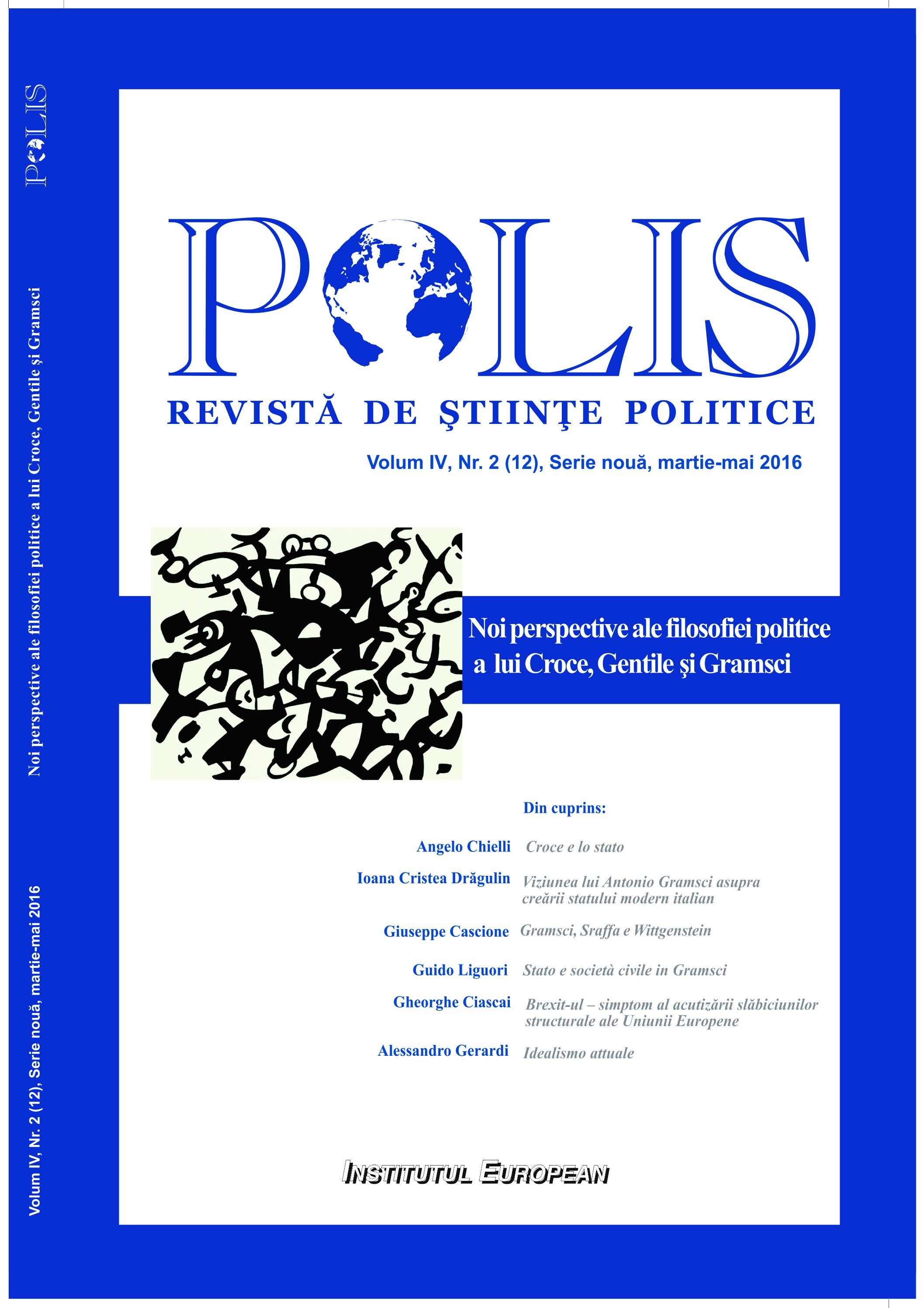
The „Doparie” is a proposal, a method indeed, for participatory democracy in a context of a representative democracy. The awareness, that the policy, which has long been considered unreliable by the civil society, has been the assumption for a search of an organic participation. This has been developed through a scientific survey conducted by the National Research Council that examines the relationship between „emotion and participation”, using also the studies of prof. B. Frey on „Economics and Happiness”. The goal is to create a public opinion structured within the parties that may have an influence, through a deliberative debate on the partisan choices.
More...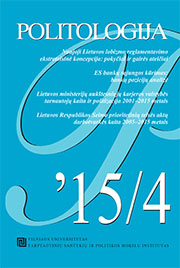
Republic of Lithuania Law on Lobbying Activities (further – LLA) extralegal concept is considered to be deficient, regulation – ineffective. In this context, on January 23rd, 2015 Draft Law on Amendment of Republic of Lithuania Law on Lobbying Activities (further – DLALLA) was introduced. Functional blocks of legal rules from which legal regulation of lobbying consists and whether the regulation properly correlates with the reality of lobbying processes depend on the extralegal concept of regulation. In the context of theory and practice of lobbying it is investigated how fundamental elements of the concept of lobbying – essence of the phenomenon, subjects, target and methods – are disclosed in the DLALLA, qualitative alteration of the DLALLA is estimated while comparing it with the LLA, recommendations for improving the draft law based on the latter analysis are provided. Analysis of the issue of lobbying essence revealed frailty of the extralegal concept of the DLALLA. After moving from “actions aimed to influence” to “actions that influence” the scope of the regulation of lobbying is being unreasonably reduced. Taking into account the purpose of the regulation of lobbying two possibilities should be considered – returning to a conceptual minimum of lobbying defined in the LLA or, in order to avoid unreasonable expansion of regulation, determining lobbying through lobbying contact. Target of lobbying by the content in both LLA and DLALLA is identified identically, differing only in phrasing. Taking into consideration that current regulation of lobbying in Lithuania is inactive, target area of lobbying should have been reformed while modeling extralegal concept of the DLALLA. One of possible alternatives is to narrow target area of lobbying by purifying which subjects of public authorities constitute priority and defining that lobbying activities are regulated only in respect of these subjects. Expansion of lobbying subjects in the DLALLA up to three lobbying categories is one of the most successful moments of the extralegal concept of the DLALLA. Latter reveals that while reforming legal regulation the theory of lobbying can be taken into account, situation of lobbying processes in the country can be evaluated and the most optimum version can be selected. Adopting DLALLA would lead to a significant influence in the amount of information about lobbying activities.While comparing lobbying methods in the DLALLA and LLA no alterations were identified which is estimated as a negative aspect. In the present case it should be analyzed and evaluated which methods of indirect lobbying are most effective and prevalent in Lithuanian and, depending on these methods, additional legal regulations should be created. In order to achieve a higher level of transparency in the process of lobbying a possibility to spread the regulation of lobbying in such formalized and well known areas of impact on public authority as right of petition, right to criticize the work of state institutions and officers, right to convene in legislative initiative, etc., should be considered.
More...
The article studies the problems of participation of the oppositional intelligentsia in public life of modern Belorussia. The author points out the most characteristic features of thinking and political behavior of the Belorussian oppositional intellectuals.
More...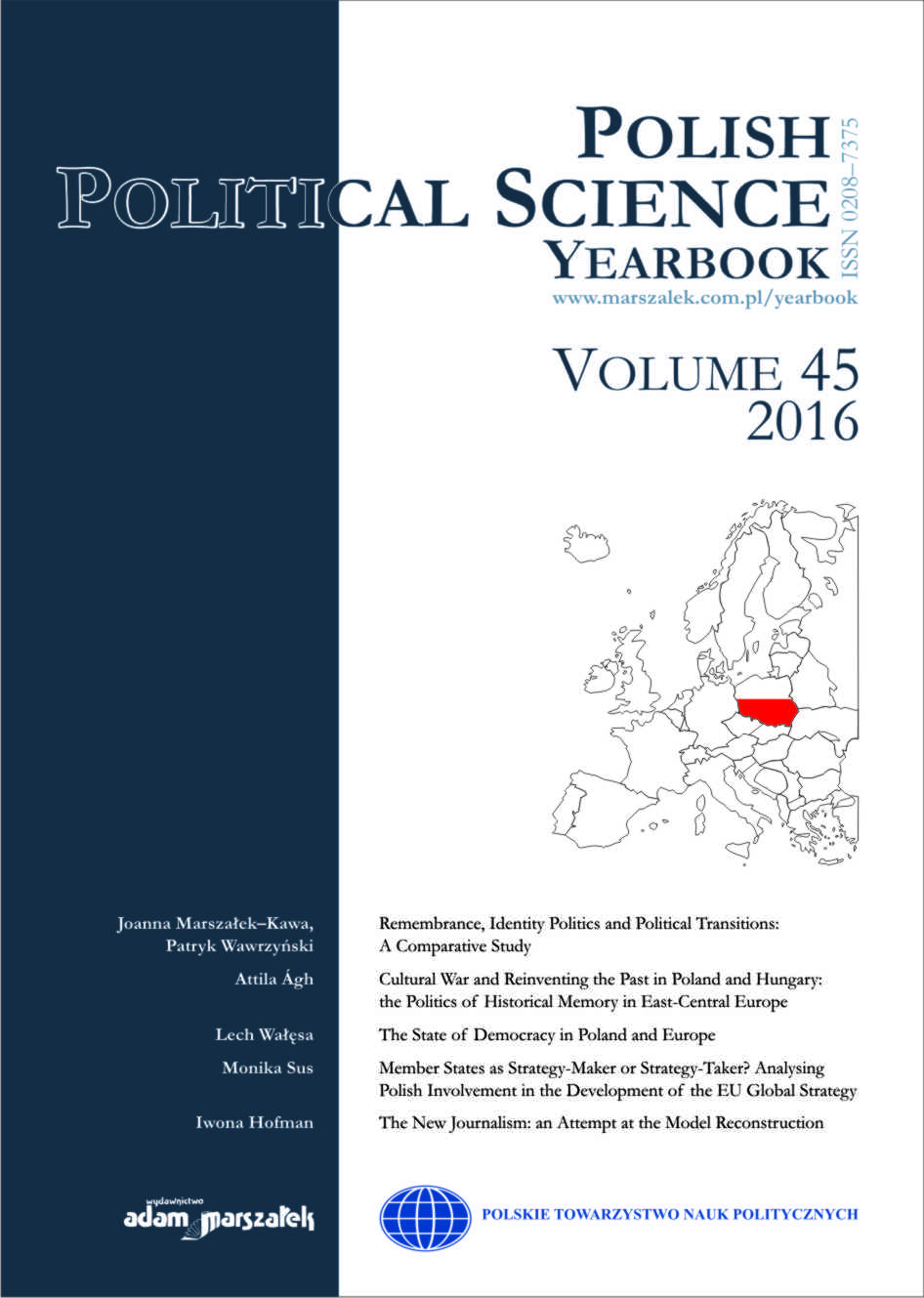
The aim of the article is to present the psychological roots of fundamentalism, which can be found in each type of the phenomenon, and also an attempt to show fundamentalism, as the configuration of certain personality traits. As the basis for such an interpretation of fundamentalism, serve the psychological approach, which relate to the personality, cognitive style, refer to the prejudices, as well as to the concept of authoritarian personality and its constitutive characteristics. Article raised the question of so–called “fundamentalist personality” on the basis of diversity of manifestations of this phenomenon and its correlation with the concepts of authoritarianism and dogmatism. Author also addresses psychological category of attitude, which is the starting point in the discussion of the phenomena, such as fundamentalism or nationalism. In the background of considerations is an attempt to organize knowledge on fundamentalism, taking into account the historical roots of the phenomenon, and also, as a complementary reflection, a legitimacy of identifying fundamentalism with terrorism.
More...
Public disqualification of women is done through denying them the right of ownership and decide on their bodies and it is a paradigm of the conservative, nationalist discourse of the Serbian Orthodox Church, but also a crucial part of the value system of the right wing, which remains the same for different social systems. Right wing organizations and the Serbian Orthodox Church not only disapprove the emancipation of women and their equal position in society, but continually oppose these values in public and media space and actively advocate for the disrespect and violation of the rights guaranteed by the Constitution and other laws. In a secular society such as ours, the border separating state and church should be clear, so that patriarchal, traditional, conservative discourse of the church and the right wing could not even think about usurping the (symbolic) spaces of freedoms and rights we have won, nor could they produce the hate speech and discrimination against women.
More...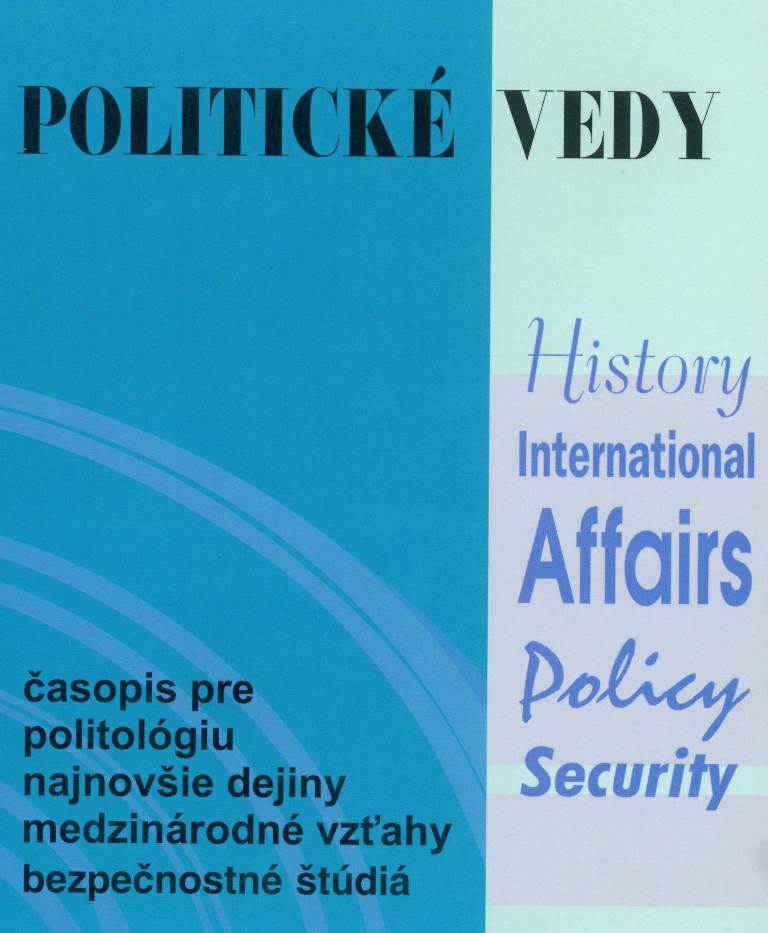
After the 1980 and 1995 sovereignty referendums in Quebec, relevant international institutions and liberal democratic states involved in secessionist struggles of their peripheries and scholars started to pay attention to the issue of wording of ballot formulas designed for independence referendums. In this text, the rather underestimated scholarly reflection of the issue will be critically scrutinized. Scholars have investigated on many aspects of the ballot text. Nevertheless, I argue that the whole debate on its legitimacy can be narrowed to three most relevant legitimizing criteria. Naturally, referendum questions ought to be an important part of scholarly attention, nevertheless, the relevance of response options cannot be underestimated. Last but not least, attention was paid to the question whether single-question ballot texts deserve more legitimacy than multiple-choice ballot texts. I found out that there was a dynamic development of the issue within the last two decades. As for intelligibility of the referendum questions, scholars have defined a clear question in opposition to unbearably long and biased formulas. As for fair response options, it has not been clear whether, in future, the most common Yes-No binary alternatives might be substituted by long and illustrative response options as it was the case on the ballot text designed for “Brexit”. Finally, scholars have not brought a clear answer to the question whether a single issue – which oversimplifies the issue – or a multiple-choice ballot text – which rarely generates clear majority for any of the alternatives – fulfils better the criteria of legitimacy.
More...
Besides the Islamic State in the Middle East and the immigration crisis, the Ukrainian crisis still deepens internal cleavage between Russophone and Ukrainophone regions. At the same time, it continues to affect negatively international relations and security situation in Europe. Moreover, 20 February 2015 marked Ukraine's first anniversary of Euromaidan protests. What are the actual results of the Revolution of Dignity? Has Kiev really started a process of closer political and economic cooperation with the European Union; or, on the contrary, are we witnessing of potential long-term instability in Ukraine? Due to many tumultuous events is certainly worth analysing the one-year-period after Euromaidan. The article discusses some problems related to fundamental changes in Ukraine that have implications for further political development and its economic recovery. Based on the Fragile States Index and general indicators of „fragile“ or „unstable“ state, the author came surprisingly to the conclusion that Ukraine has fullfiled many of them. The aim of this study is particularly to demonstrate the ambivalent development of Ukraine in the respective period.
More...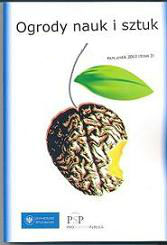
In this paper the author will present General Haller activity in the years 1940 - 1943 in London government-in-exile. Then Haller served as a minister without portfolio, who managed the Office of Education and School Affairs. The paper will be raising issues regarding the administrative organization of the unit, will present the profiles of the main activists of education (M. Jedlicki, F. Lenczowski, L. Kurdybacha). In later years costs of maintaining educational institutions in exile were rising, so the budget of the Office of Education and School Affairs will be examined in the specified objectives spending the money. Author briefly characterizes emerging business schools in exile in the UK, Cyprus, the Middle East, in the terms of number of students, teaching staff and the way General Haller supported the establishment. The primary source materials used in the paper are the archives of the Polish Institute and Museum of the general Sikorski in London (author of the query was there in July 2014) and the State Archives in Warsaw.
More...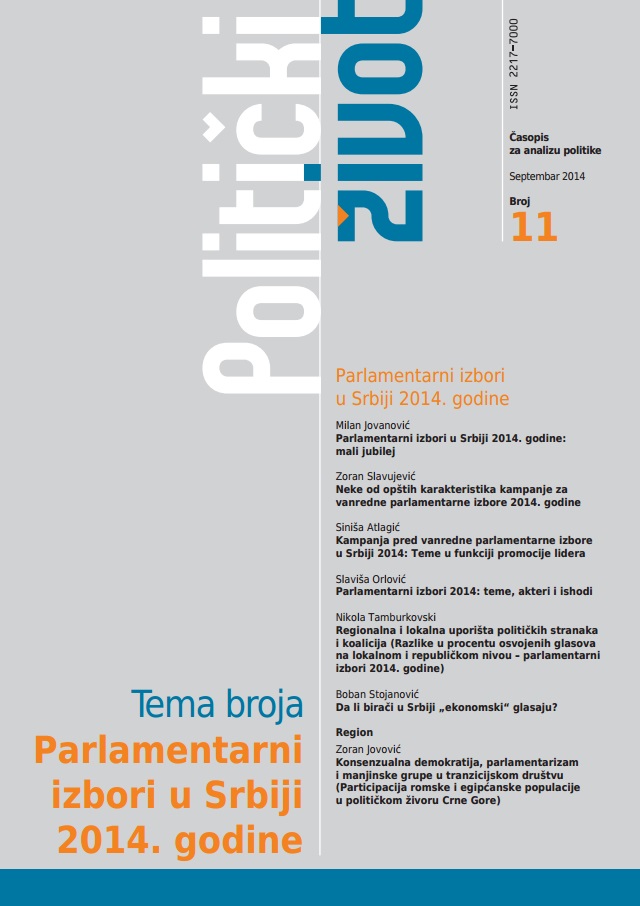
In this paper we examine the motives of the election decisions when the voters vote in elections. That is, we wonder if the voters in Serbia economically vote? Economic voting assumes that voters make decisions based on the results of economic policies and economic policies proposals offered to the voters at the elections. The study are voters in Serbia voting economically, we highlight three periods: 2004–2007, 2008–2012 and 2012–2014. year. After the analysis of economic indicators and election results, we conclude that the voters do not vote economically.
More...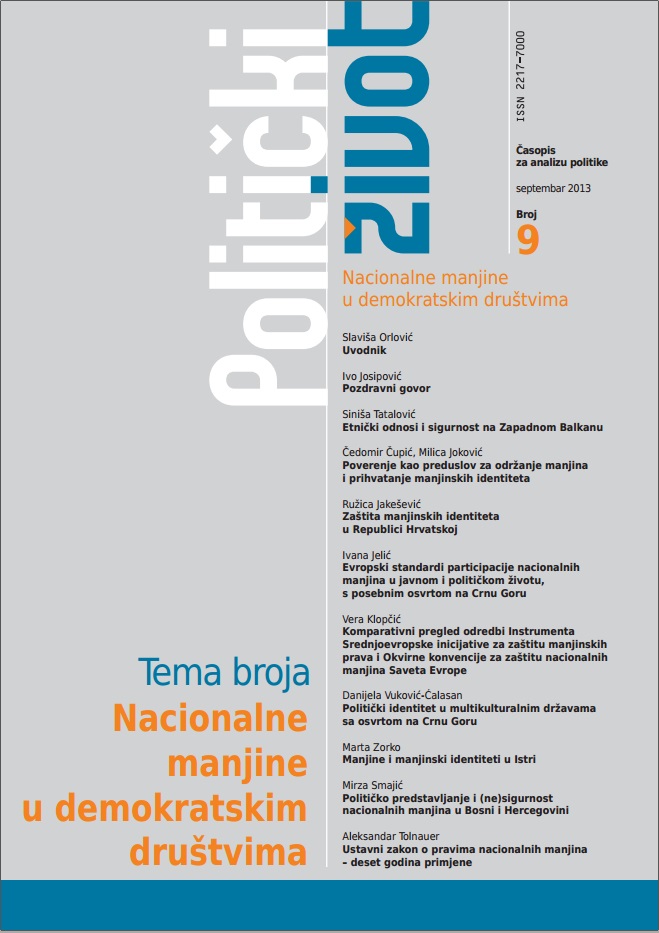
The notion and meanings of trust. Trust as a cultural precondition of democratic order belongs to the man’s second nature. The significance of universal values for the foundation of trust. The relation of reliability, risk, expectance and trust. Disappointment in trust. Trust as moral obligation. Two kinds of human obligations: obligations stemming out of body movement and impersonal obligations. Trust between citizens and authorities and trust between citizens themselves, coming out of their differences. Mistrust in political and societal life. Prejudice and stereotypes toward others and different ones and trust. Trust in pre-modern and modern societies. The significance of trust for political culture. I-functions of importance for trust: empathy, dialogue, tolerance and distance. National homogeneity as an articulation of mistrust to minorities. The significance of autonomy for maintaining minority identities.
More...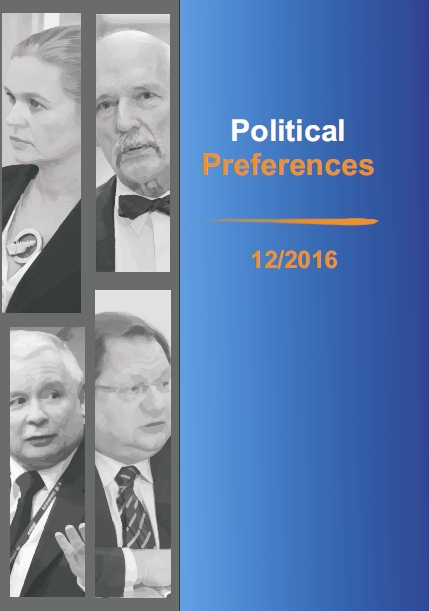
The aim of the article was to present factors that determined voting behaviour of citizens in national elections in 2015 in the perspective of party and personal attitudes of the interviewees. Except for presenting conclusions that result from the course of the research process in the aforementioned range, also the elements that could have affected eventual responses of the interviewees were indicated. These include changes at the position of PO (civic platform) leaders, appearance of new political entities (Ryszard Petru’s Nowoczesna, Together Party, Kukiz’15), or unification processes on the political right, and partially on the left. Personal conflicts and ways of conducting the campaign that could have affected attitudes of voters were also indicated.
More...
The presented research is part of the pursuit of psychological determinants and factors differentiating between voting behaviors and ideological preferences of Polish voters. Many empirical studies prove the existence of significant relations between the values preferred by a person and the person’s behaviors, which also has its robust evidence in the area of studies on electoral behaviors. The aim of the article is to analyze the system of higher-order values (conceptualized by Shalom Schwartz) of the 2015 parliamentary election electorates and individuals with different ideological self-identifications. The obtained results point to several interesting issues, e.g. they show the weakest preference for strength ening oneself, common for all the electorates, and the most contrasting system of values represented by the voters of the Kukiz`15 group.
More...
In this paper, the author examines the ways of functioning of global capitalism, accompanied and strengthened by the domination of neo-liberal discourse that operates by means of the techniques of Hegelian „bad infinity“, thereby confirming its power through the accommodation and incorporation of different movements and alternative ways of thought. Yet, at the level of praxis and articulations of various voices from the margins, what is considered as the Left escapes cooptation and uncovers the vulnerability of neo-liberal domination and false „truths“ of the neo-liberal right wing discourse, which does not present but produces reality. Different practices and forms of the so-called direct action (e.g. the Occupy movement, protests in B&H) despite of their marginality expose the partiality and particularity of this domination which claims to be universal and naturalized, but not less manipulative. Such practices are elaborated and strengthened further by thought patterns within contemporary political theory and multifarious approaches, especially from so-called „poststructuralist margins“, relying also, among others, on Lacan’s insights.
More...
O pritiscima i kontroli medija u Srbiji Verica Barać o Draganu Đuriću, Miškoviću i Autokomandi Tajkuni i gradnja novih stadiona "Partizana" i "Crvene Zvezde" Odgovor Saveta za borbu protiv korupcije na neistinite navode Mlađana Dinkića o borbi protiv korupcije Predstavljanje izveštaja o pritiscima i kontroli medija u Srbiji Verica Barać o sistemskoj korupciji Kako tajkuni deru i upravljaju Srbijom
More...